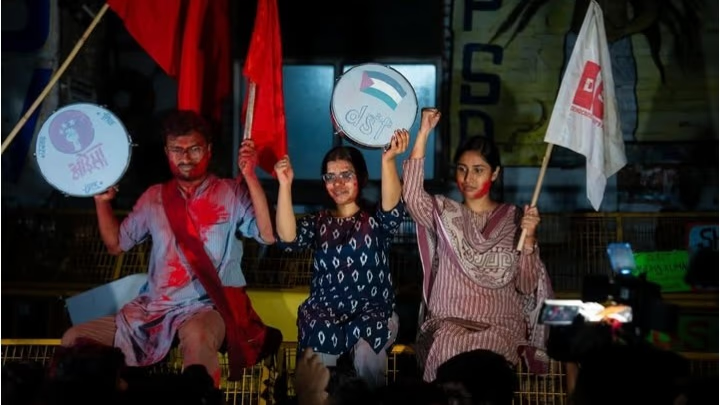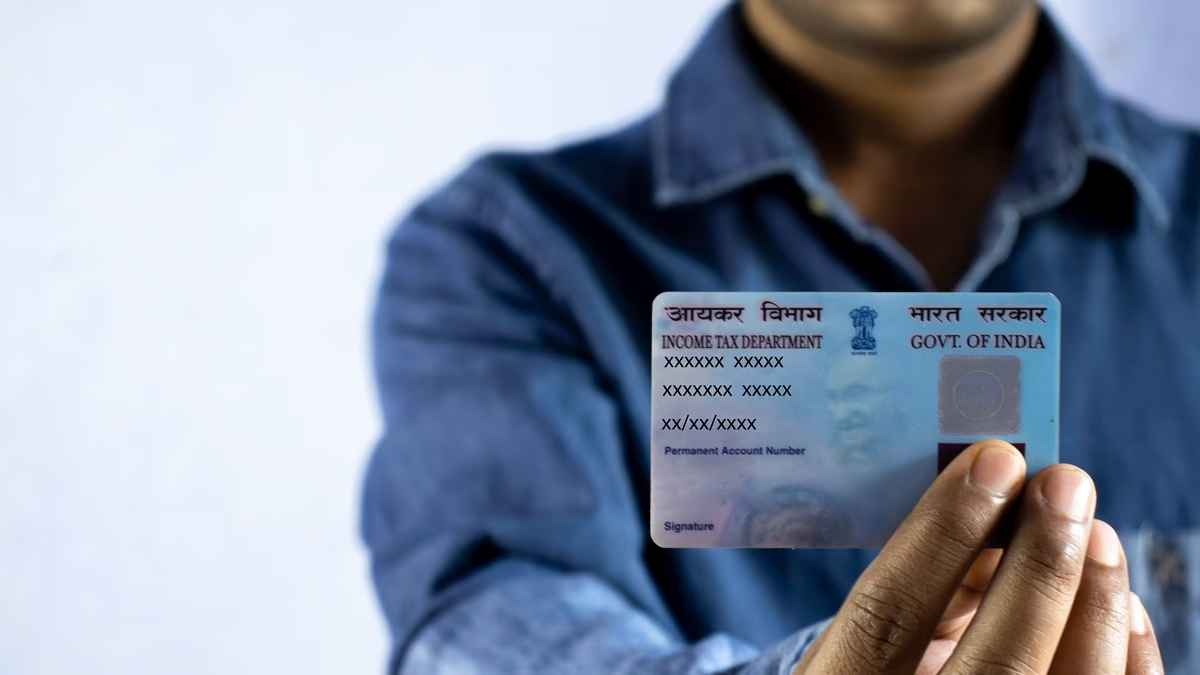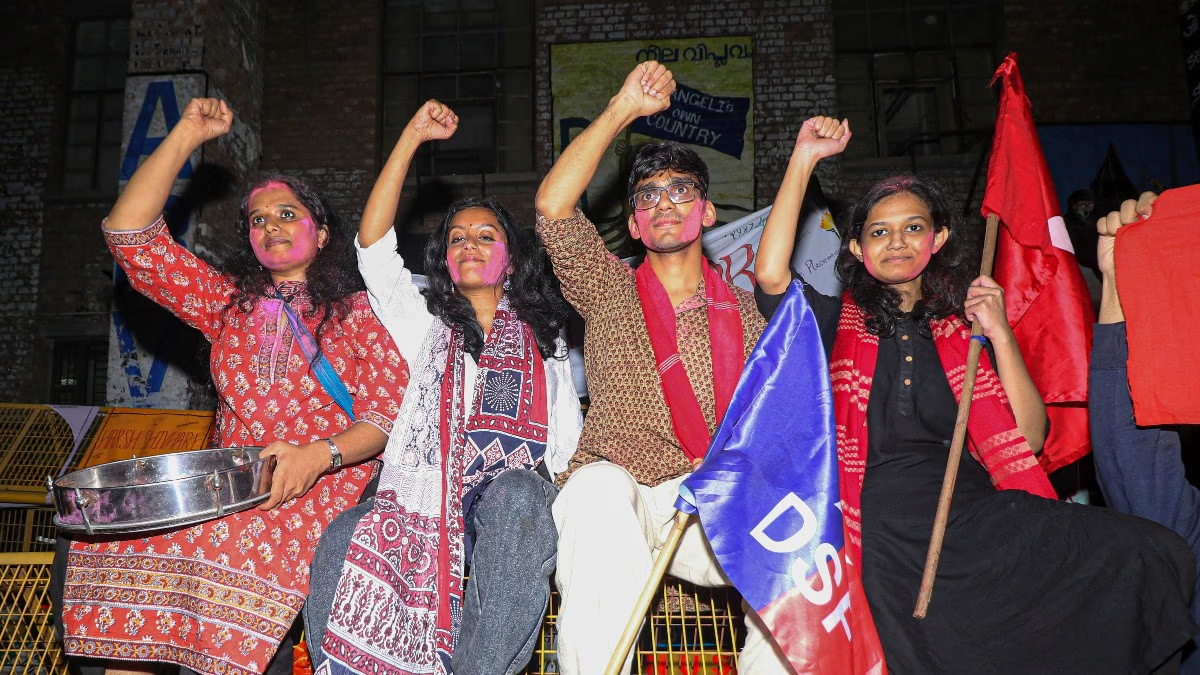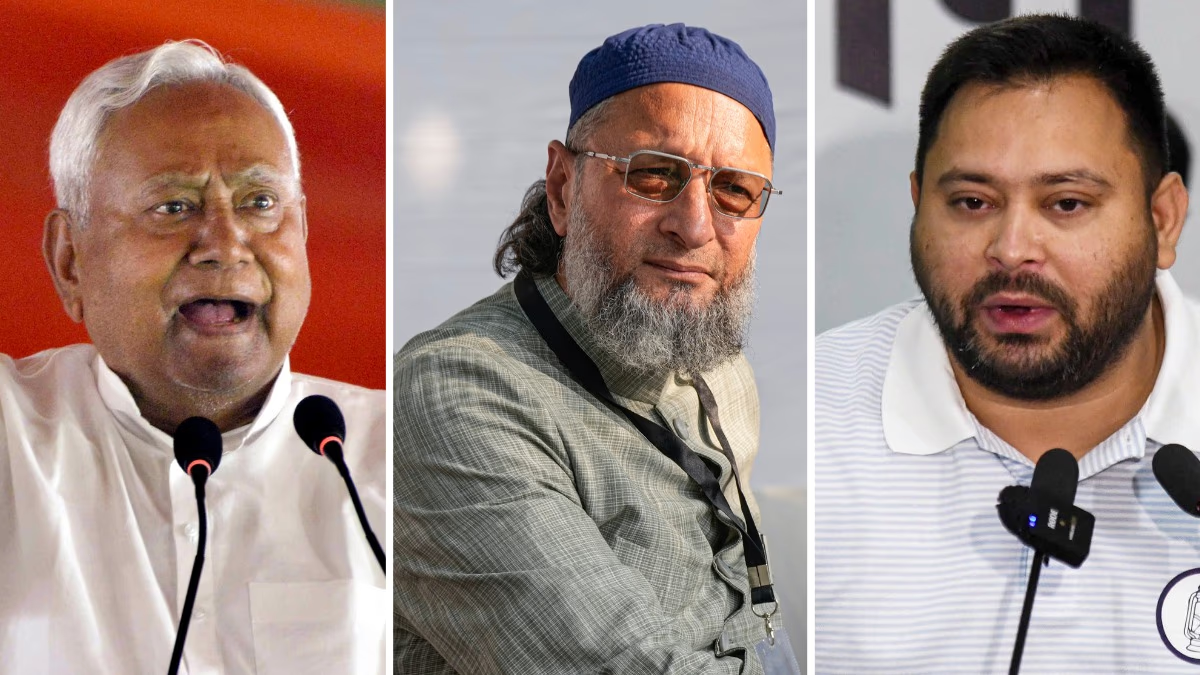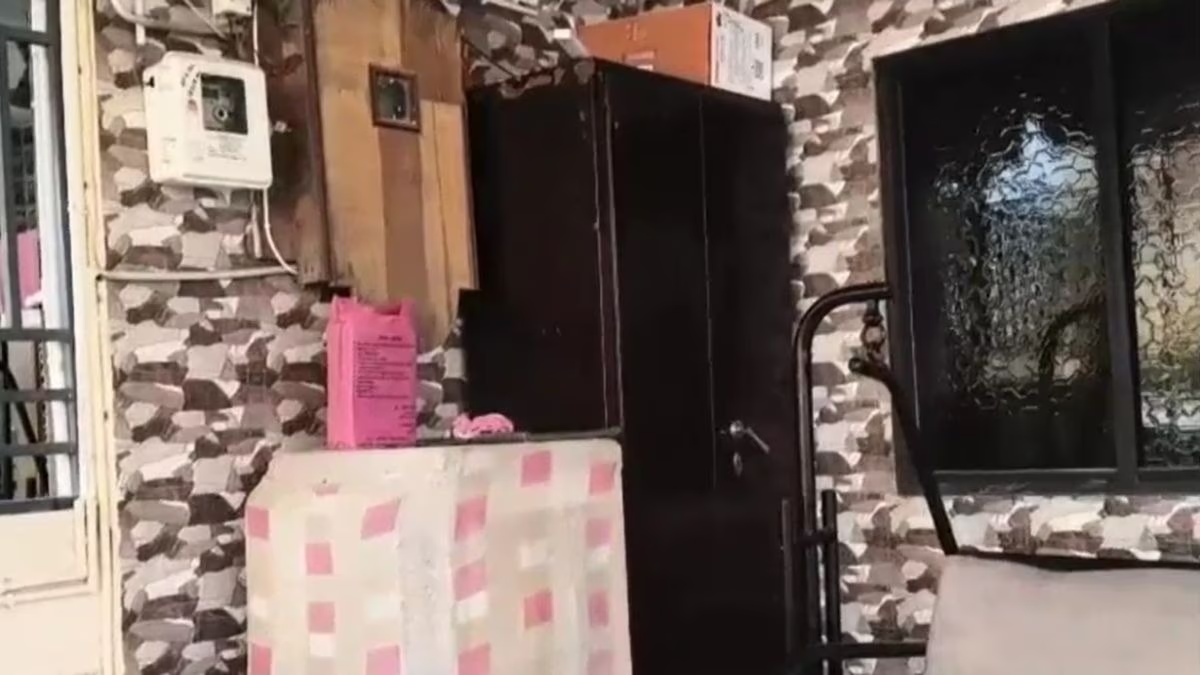The Jawaharlal Nehru University Students' Union (JNUSU) election witnessed a gripping contest where the Left Alliance of All India Students Association and Democratic Students Front (AISA-DSF) claimed victory in three out of four central panel positions. On the other hand, Akhil Bharatiya Vidyarthi Parishad (ABVP) secured one position.
AISA's Nitish Kumar was elected as JNUSU President, while DSF's Manisha and Munteha Fatima were chosen as Vice President and General Secretary respectively. Meanwhile, ABVP's Vaibhav Meena triumphed as the Joint Secretary of JNUSU.
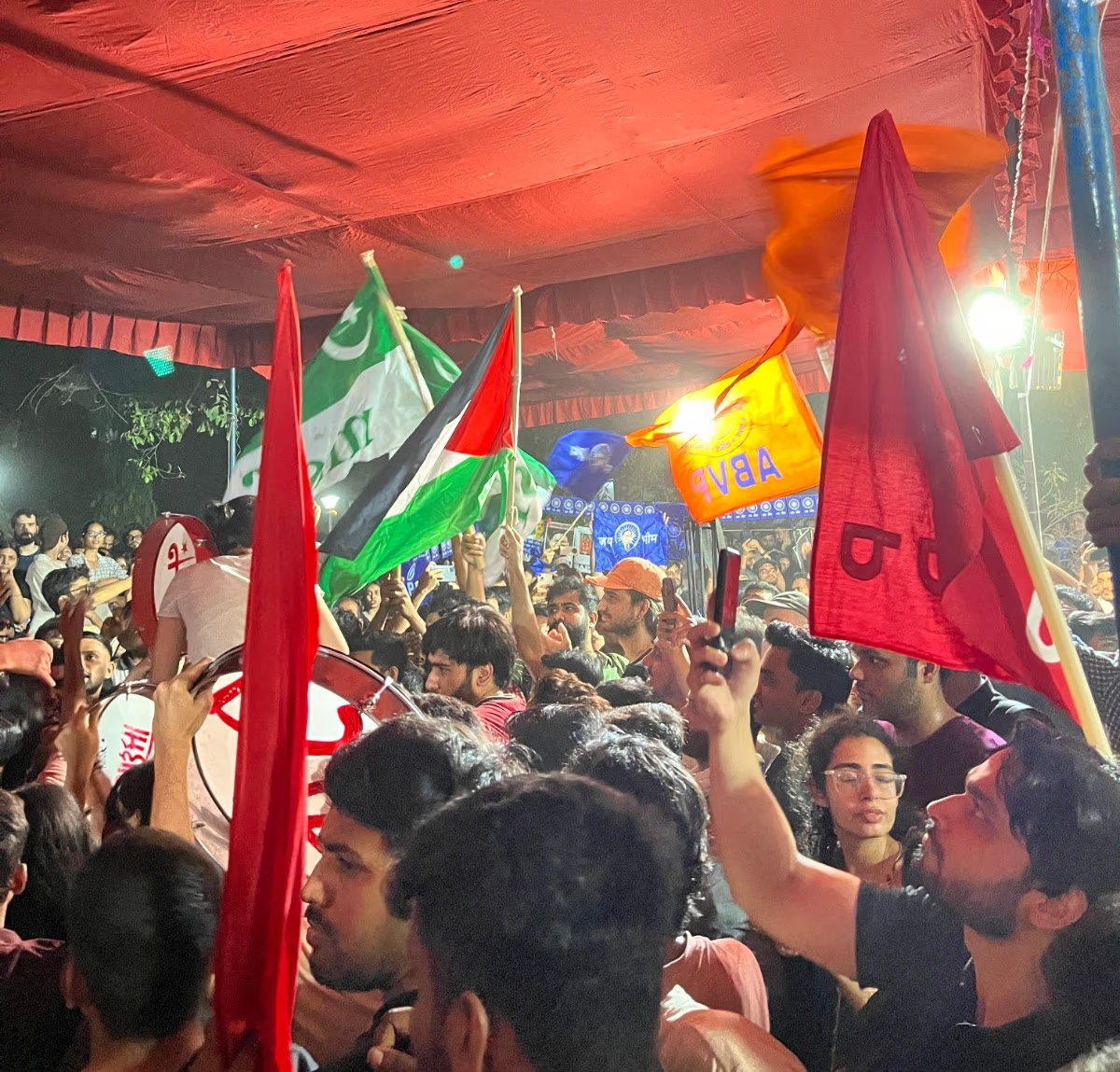
Source: aajtak
Nitish Kumar (26), the winning candidate for the Presidential post, is a third-year PhD scholar at the School of Social Sciences' Center for Political Studies. He hails from a farmer family in Araria district, Bihar.
Manisha (27), elected for the Vice President position, is a PhD student at the Centre for East Asian Studies. She belongs to a laborer-class Dalit family in Haryana. Manisha says, "I am the first girl in my family to step into Delhi and dream of pursuing a PhD at JNU."
Munteha Fatima (28), who waved the flag as General Secretary, is a PhD scholar at the Centre for West Asian Studies. She resides in Patna, the capital of Bihar. Her journey from Patna to JNU has been fraught with economic challenges and social pressure. She says, "Where we come from, entering politics seems daunting. My mother often said not to get involved, fearing it would ruin my future."
Vaibhav Meena (27), victorious as Joint Secretary, is a PhD scholar in Hindi literature. He is the son of a tribal farmer from Karauli district, Rajasthan. He took up part-time jobs to cover university fees and pledged to gain an education.
Speaking with aajtak.in, AISA's Nitish Kumar remarked, “The campaign in the campus wasn't for JNU's betterment, and students have rejected it. AISA has always advocated for struggle politics, standing up for students' minor and major issues. Those who stand in struggle are chosen by students. Our primary demand is to ensure that UGC funds reach JNU.”
He further stated that the gap between rich and poor in education should be closed so that everyone can study equally. If JNU is a public university, the government should not cut its funds. Infrastructure should be improved, and entrance models inclusive.
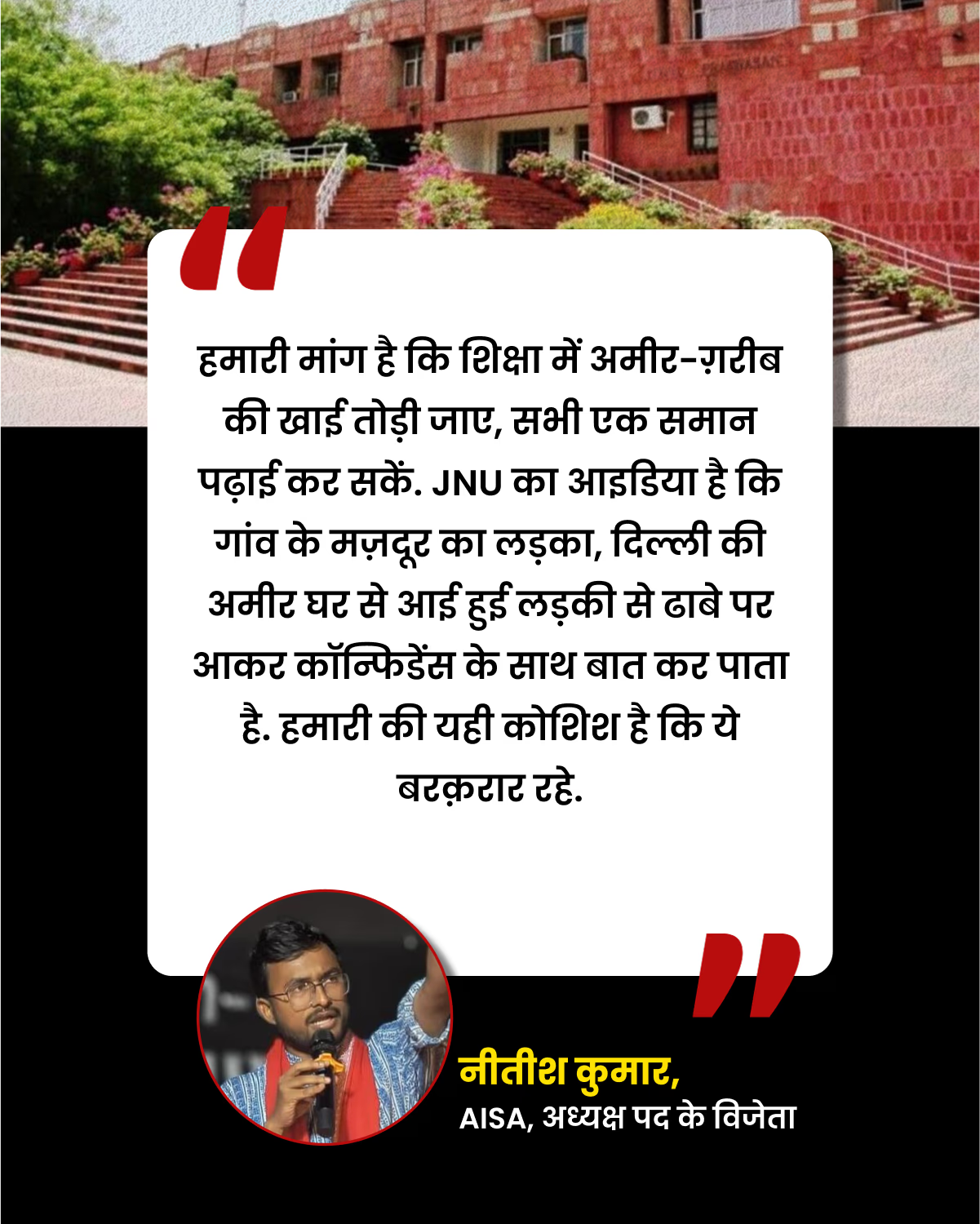
Source: aajtak
DSF's Munteha Fatima says, “We will unite JNU's progressive forces and continue fighting on student issues. We must join forces and push forward progressive politics. We must move towards a society where everyone has equal rights.”
Munteha further elaborates, “Fees are increasing, scholarships are delayed, changes have been made to entrance exams, and there's a push for privatization. We will try to pressurize the administration on these issues. We don't want the kind of suppression seen in Jamia Millia Islamia's student protests to happen here too.”
DSF's Manisha states, “Our fight will be to save the campus and its democracy. At a time when fascist forces are strengthening, students have trusted two women for the central panel. This result confirms that JNU is progressive.”
ABVP's Vaibhav Meena comments, “JNU students supported the politics done on campus issues. Students understood this time's candidates and ideologies and gave their mandate. We will work on our manifesto and promises because this will be our foundation for the next election. Left student leaders forget the campus after winning elections. We will work on campus issues.”
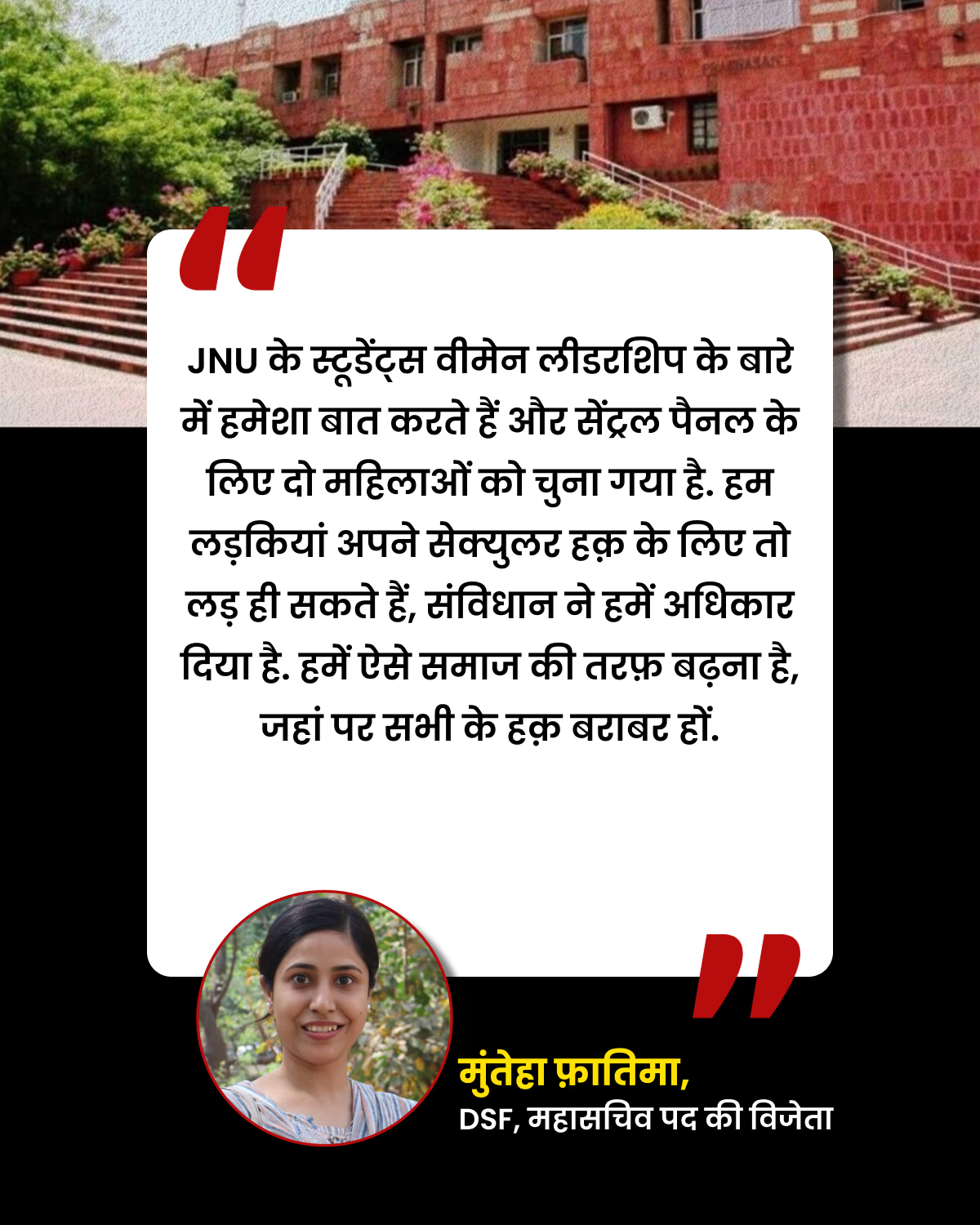
Source: aajtak
This time, JNUSU elections revealed a rift in the Left unity. As a result, leftist student organizations split into two factions. Before the elections, ABVP’s presidential candidate Shikha Swaraj told aajtak.in that the split in Left unity would benefit them.
After the election results, ABVP’s Vaibhav Meena dismisses the notion that the Left's division benefited them. He says, “There is no Left unity; it is an opportunistic alliance. They came together this time for the president post but were united to defeat ABVP. An undeclared alliance always exists to defeat ABVP candidates. We won through our hard work. Whether they had an alliance or not did not affect us.”
Meanwhile, Manisha claims, “The one seat we lost on the central panel is not considered ABVP's success, as none of their counselors won among nearly 2300 students in the School of Language.”
Additionally, Nitish Kumar says, “The Left's rift caused progressive votes to split, resulting in an ABVP candidate winning. But we cannot forget that ABVP is a strong force on this campus. This time, ABVP has also strengthened in classroom spaces.”
Munteha Fatima says, “JNU students always talk about women leadership, and they have chosen two women for the central panel. We girls can fight for our secular rights, the constitution gave us this right. The ratio of female research scholars in the campus is decreasing. Deprivation points were given to females in PhD, which made a difference; we will continue our fight for this.”
She adds that female PhD scholars receive single-seater rooms in the fourth-fifth year. Our demand will be that they be given in the second year like male students.
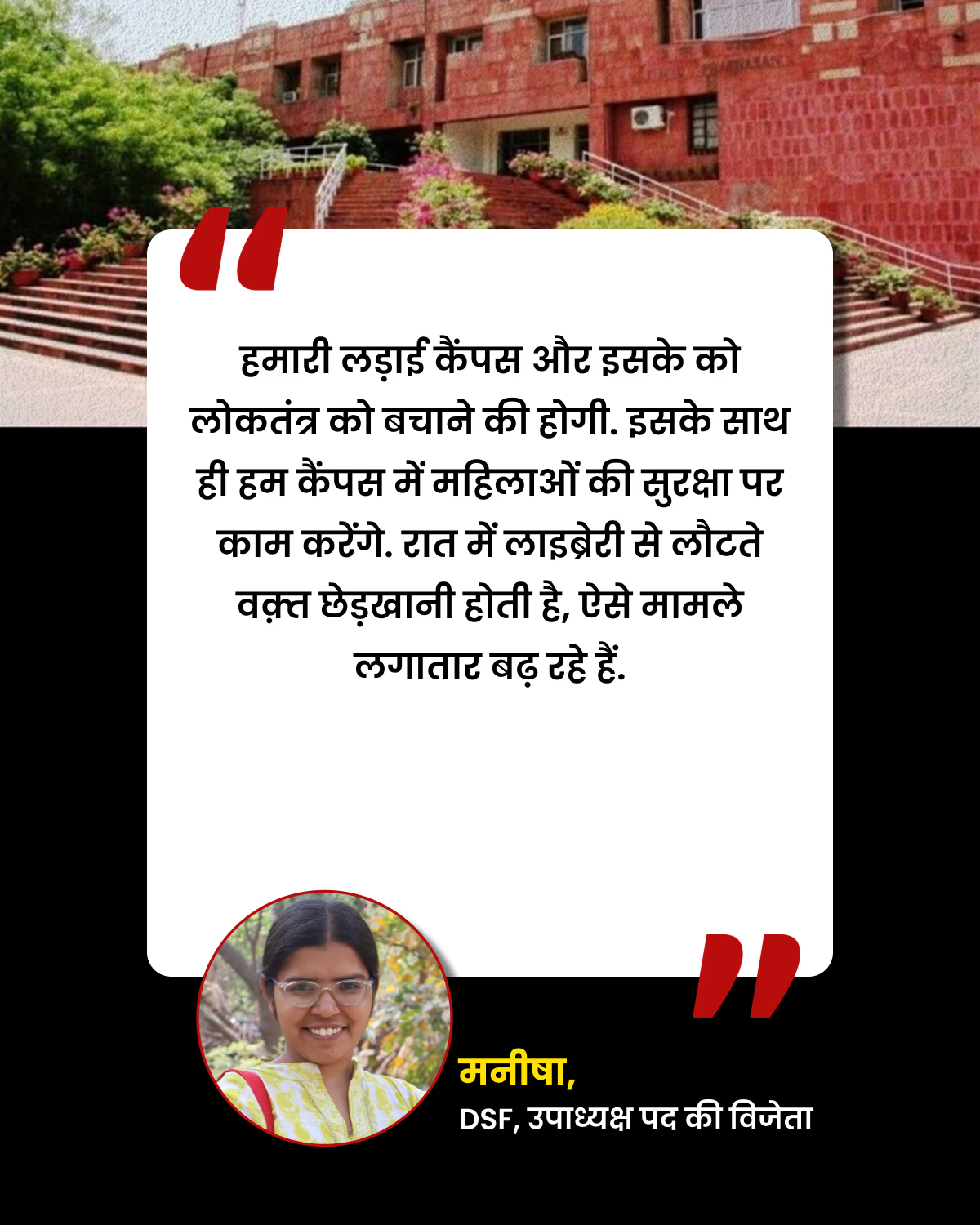
Source: aajtak
Manisha claims, “Women's safety is being ignored. There are incidents of harassment at night returning from the library, and such cases have been increasing.”
Munteha reports that cases of sexual harassment on campus are rising. To combat this, there was a body called GSCASH (Gender Sensitization Committee against Sexual Harassment), which was abolished, despite the Supreme Court's approval. We will attempt to reinstate GSCASH.
The JNU Administration has implemented a Chief Proctor Office (CPO) manual on campus. The administration claims that the CPO's purpose is to maintain discipline and implement rules and guidelines. On the other hand, students allege that their voices are being suppressed through this. It's noteworthy that the CPO manual inside the campus is an issue on which both the Left and ABVP agree.
AISA's Nitish Kumar states, “There are many issues with common ground, one is the CPO manual, where protesting students are put on FIR. Both ABVP and Left speak against the CPO manual, but when we protest and say it was brought by RSS-BJP, ABVP remains silent.”
ABVP’s Vaibhav Meena says, “Last year when we (ABVP) staged a protest, a fine of about 450,000 rupees was imposed on the activists. We merely raise students' voices and face fines. These things should not happen on campus. We will raise our voices against the administration's dictatorial behavior to suppress students and work to remove the CPO manual.”
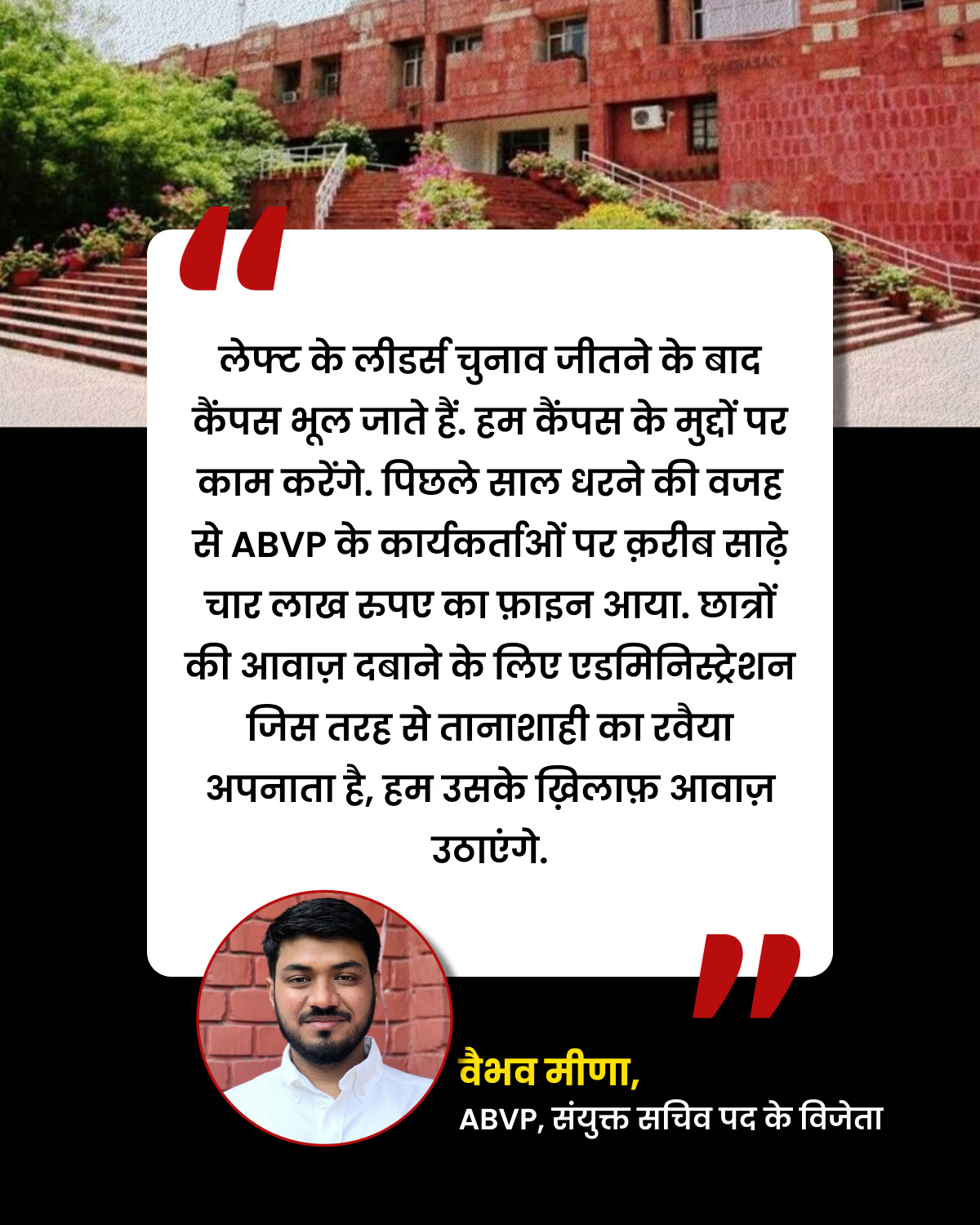
Source: aajtak
Meanwhile, DSF's Manisha says, “Under our constitutional right, we try to talk to the administration. If our words aren’t heard, we start protesting. CPO manual was brought to suppress our protests, under which we are fined and intimidated. Thus, we challenge the admin-ABVP nexus.”
Nitish Kumar says that we aren’t being allowed to protest at present. If a protest occurs within the university, a fine is imposed by the administration. Spaces for dialogue are being reduced. JNU is designed so that a village laborer's son can confidently converse with a girl from a wealthy Delhi home. The government does not want this to increase trust among each other. JNU strives to achieve this. Our effort will be to continue this endeavor.
Vaibhav Meena adds, “JNU is known for its intellectualism and will continue to be. We will work to preserve it. Various talks used to happen on campus, and we will work to restart them. Across the nation, in institutions like Jamia Millia Islamia, Ambedkar University, Hyderabad University, and Allahabad University, if students demand democratically and the administration tries to suppress their voices, ABVP will always be seen standing with the students. In all these universities, ABVP units have stood firm on such occasions and will continue to stand.”
Vaibhav further says, “We will ensure that no anti-national activities take place on campus under the guise of intellectualism. We will work to eliminate divisive politics here.”
Manisha counters, “Under laws like UAPA, people like Umar Khalid and Sharjeel Imam are imprisoned due to protests. We have consistently raised our voices against this. Our demand will be that all kinds of political prisoners should be released.”
